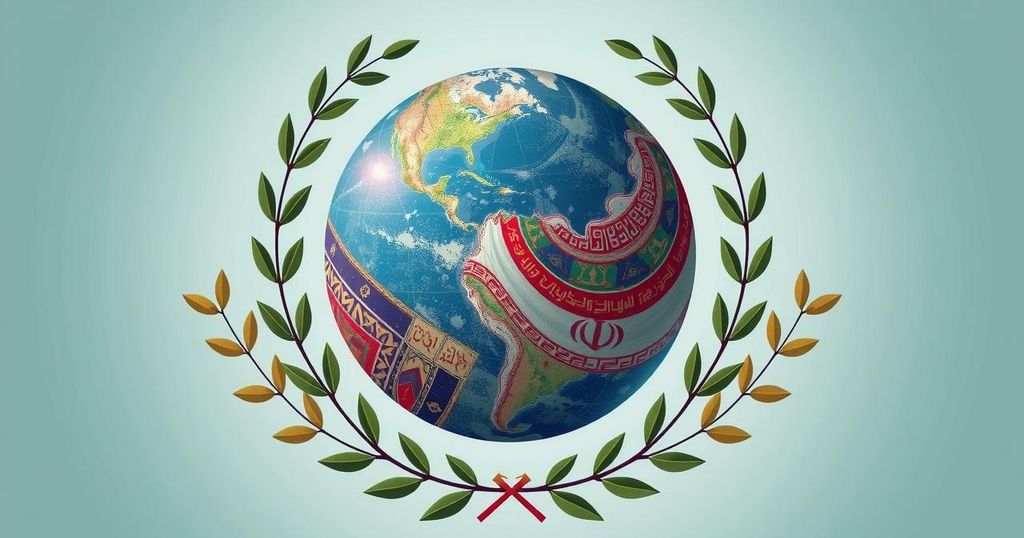Iran’s Foreign Minister congratulates Uruguay’s new FM and emphasizes a commitment to strengthening Latin American ties. The outreach is part of a broader strategy to counter U.S. sanctions and enhance economic partnerships. The historical relationship spans 120 years, with ongoing collaboration in agriculture and mutual diplomatic support. Iran sees opportunities for diversification in its alliances with Latin American countries.
Iran’s Foreign Minister Abbas Araghchi has formally congratulated Uruguay’s new Foreign Minister, Mario Lobotkin, reinforcing Tehran’s intention to strengthen ties with Latin America. This gesture highlights Iran’s strategic objective to forge partnerships in a region traditionally influenced by the United States, particularly through collaborative resistance against Western sanctions and a common interest in economic diversification.
In his message, Araghchi emphasized the longstanding relationship, which has spanned over 120 years, and expressed optimism regarding the potential for a renewed phase of cooperation. He stated, “The Islamic Republic of Iran is committed to leveraging opportunities to strengthen relations and mutual benefits for both peoples,” hinting at significant untapped economic and diplomatic prospects.
The formalization of modern relations between the two nations occurred in 1983 with the establishment of reciprocal embassies, which has paved the way for increased trade growth. Uruguay has become a vital supplier of agricultural products, such as rice, wool, and soybeans, to Iran. Diplomatic exchanges, including ministerial visits, have solidified their partnership further.
Iran’s outreach to Uruguay is part of a broader strategy to counteract U.S. sanctions by fostering alliances within Latin America. “Latin America is geopolitically vital,” stated Davoud Salehi, former Director General of Latin America at Iran’s Foreign Ministry, while acknowledging the resilience of partnerships cultivated despite U.S. opposition.
Iran’s collaboration with Venezuela, particularly in oil infrastructure and tractor manufacturing, exemplifies this strategic objective. Salehi remarked, “Venezuela’s vast reserves and shared resistance to sanctions make collaboration indispensable.” Additionally, Iran perceives Cuba as an important partner in biotechnology and agriculture, indicating areas for mutual benefit.
The imposition of Western sanctions has inadvertently driven Iran towards diversification of its alliances. Salehi pointed out, “We have new partners in our neighborhood and beyond.” Although logistical challenges exist for Iranian businesses entering distant markets, proactive diplomatic efforts are encouraged to advance Iran’s interests in diverse regions.
Tehran assures that its engagement in Latin America seeks win-win situations for all involved. For Uruguay, this cooperation provides access to Iranian markets and diplomatic support at multilateral platforms. For Iran, it signifies a strategic advancement into what experts describe as the “United States’ backyard.”
Despite ongoing U.S. pressure on regional governments to limit interactions with Iran, Salehi remains hopeful, asserting that “Diplomatic creativity can overcome barriers. Our focus on human rights and equitable growth resonates globally.”
In summary, Iran is strategically working to enhance its diplomatic and economic ties with Latin America, particularly following Uruguay’s appointment of a new Foreign Minister. Emphasizing a long-standing relationship, Tehran seeks to cultivate partnerships that benefit both nations economically while simultaneously countering U.S. influence in the region. Despite challenges, Iran remains optimistic about its opportunities for collaboration, especially in agricultural and industrial sectors.
Original Source: www.tehrantimes.com




